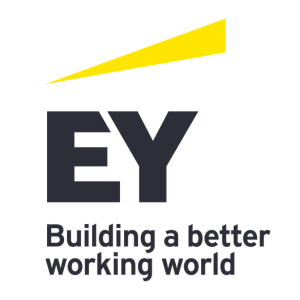Administration | Leadership | Management | Strategy
Bespoke Workshop: Above Board | The Roles and Responsibilities of Directors
Due to the fast-paced and constantly evolving business environment, the roles and responsibilities of directors become increasingly important in maintaining a sound business. Directors have a duty towards their shareholders to ensure strategic direction and stewardship towards the smooth functioning of the business. This workshop will tackle the roles and responsibilities of directors from all perspectives, including legal, statutory, employer, money laundering prevention and corporate governance.

Flexible
Start Date
2 Days
Number of Hours
Workshops
Certification
EY Connect Learning
Course Provider
€ Varies
Prerequisites
None
Basis
Part-Time
Location
In-Person | Online
Course Fees
€ Varies
What you'll learn
Who should attend
This workshop is suitable for business entrepreneurs, board members, executive and non-executive directors, directors on audit committees of Boards and Finance directors. CEOs, CFOs and executives working closely with Boards are also encouraged to attend.
Fees
€300 per participant
Course Modules
Session Outline
The session will cover the legal duties and responsibilities of directors and in particular it will go into the directors’ role at law by distinguishing executive from non-executive directors as well as their general duties under the Companies Act. Personal liability will also be discussed, primarily in the context of wrongful and fraudulent trading. The course will also go into Article 13 provisions and how these have been interpreted by Maltese Courts.
The session will cover:
- The role of directors and the distinction between executive and no executive directors, with case law to demonstrate this
- Director’s duties both in terms of the Companies Act and fiduciary duties in terms of the Civil Code of Malta
- Conflicts of interest and personal liability in terms of the Companies Act
- Wrongful and fraudulent trading accompanied by relevant Maltese case law on both principles
- The concept of Vicarious Liability in terms of Article 13 of The Interpretations Act comparing this to similar provisions found in various other Maltese legislation
- The session is concluded with an analysis of the decision made by the European Court of Human Rights in Lekic v Slovenia, particularly in relation to the corporate veil and state-imposed closures.
Session Outline
While senior management is entrusted to manage the company’s day-to-day finances and prepare financial statements, the company’s board of directors has the ultimate responsibility for overseeing the financial reporting process and monitoring the company’s financial position. This responsibility is critical and ever-expanding as the number and magnitude of financial reporting risks to be managed and monitored continue to grow. To meet their financial reporting responsibilities, directors should be sufficiently familiar with the company’s affairs and ensure that they have all the relevant and complete information for this purpose.
This course is intended to provide you with an insight into the statutory financial reporting responsibilities for directors, including:
- Maintaining accurate, verifiable, complete and timely financial information
- Preparation of financial statements in accordance with generally accepted accounting principles and practices
- The form and content of the director’s report and
- Determining, understanding and approving the appropriateness of the company’s accounting policies, key areas of judgement and estimation.
Finally, we will also look at guidance issued by local regulators to assist directors in fulfilling and discharging their financial reporting responsibilities.
Session Outline
The session will cover the legal duties and responsibilities of directors, including those put forward by the Income Tax Acts and the Value Added Tax Act. The session will address the statutory obligations applicable for companies under the provisions of the Income Tax Acts and Value Added Tax Act, including:
- The periodic forms which companies are required to prepare, complete and, where applicable, submit from a corporate income tax perspective, including those pertaining to the refundable tax credit system;
- The forms which companies are required to submit from a VAT perspective;
- The tax settlement dates vis-à-vis any taxes due by the company, including potential extensions and, where applicable, preparation and submission of a blanket stamp duty exemption;
- The documentary requirements are applicable from a transfer pricing perspective; and
- Those put forward by the automatic exchange of information rules, particularly FATCA, CRS and the Mandatory Disclosure Rules.
Payroll Compliance
Keeping up-to-date and proficient when it comes to payroll preparation. During this session, we will take you through an understanding of the applicable Maltese regulations and the practical perspective in computing payroll. This session will also detail the employers’ obligation with respect to the necessary forms to be submitted to the Maltese authorities and the relevant documents which need to be provided to their employees.
Immigration Compliance
The second half of this session will delve into immigration compliance and will focus primarily on the employer’s duties when hiring foreign nationals with the employing company/firm. For the purpose of this session, we will be focusing on service users, namely third-country nationals and their obligations under the provisions of Malta’s Immigration Act. Ultimately, this session will provide a better understanding of who is eligible to apply for a Maltese Residence Permit under Identity Malta’s Single Permit criterion which is directed specifically to third-country nationals, and the process it entails. Other topics such as permits for beneficiaries of protection, and short-term assignees (incl. posted workers) will also be discussed during this session.
Session Outline
Rising financial crime levels are a concern globally and have led to increased regulatory focus on money laundering threats and vulnerabilities. Fraud, bribery and corruption are identified as two of the key drivers for the surge in money laundering concerns and have given rise to an increasing focus on risk management efforts. The unprecedented circumstances caused by the COVID-19 pandemic have led to new ways of working and management is more than ever required to make fast and informed decisions to mitigate risks in an effective manner. This session will focus on:
- Understanding the impact of key predicate offences such as fraud and corruption on the business
- Protecting the business from money laundering
- Addressing ways of mitigating financial crime risks
- Looking into red flags – what should companies look out for
- Common failings and key challenges
- Decision-making and management accountability.
Session Outline
Corporate governance is the system by which companies are directed and controlled. A company which applies the core principles of good corporate governance; fairness, accountability, responsibility and transparency, will usually outperform other companies and deliver the long-term success of the Company. Leaders of organisations have a vital role to play in establishing effective practices. For most companies, these leaders are the directors appointed or elected by the Company’s shareholders to run the Company on their behalf. The Board of Directors are responsible for defining the purpose of the Company, defining the values by which the Company will perform its daily duties, identifying the stakeholders relevant to the Company, developing a strategy combining these factors, providing the leadership to achieve the Company’s strategic objectives and monitor management to safeguard the interests of the Company and its shareholders. The corporate governance framework should underpin the board’s accountability to the Company and its members.
This session is intended to provide you with an insight into corporate governance principles, policies and best practices and a comprehensive understanding of board governance and how Board and Board Committees can contribute towards an effective corporate governance framework, including:
- What is corporate governance and the risks of poor governance?
- What are the principles of good corporate governance?
- Application of governance rules and principles
- The composition and structure of the Board of
- Directors and the importance of diversity
- The contribution of the Board of Directors and
- Board committees in designing and implementing an effective governance framework
- Remuneration of directors
- Corporate social responsibility.
Course Provider
About EY Connect Learning
EY Connect Learning organises and provides professional training and continuing professional development through in-person sessions and virtual learning programmes. We offer world-class training, learning and development programmes in order to develop skills, including accounting and technical knowledge, regulatory updates, professional skills, and soft skills. These are aimed at professionals in various industries and lines of business, as well as, students who would like to further their education.
On a global level, the firm is constantly developing training material, coaching programmes and content, that can be leveraged, and which can be tailored for specific sectors, markets, and industries. Due to our global organisation we have a pan-European network of subject matter experts who share knowledge and market insights, which we use to keep our learning solutions up-to-date, relevant and impactful for learners.
In addition, the firm has a global pool of experienced coaches and mentors that can and would be willing to contribute towards high quality delivery and consistency on all learning programmes.
Submit interest in course
Please Login Before Accessing This Form.


